
The investigational drug MAb-AR20.5 is the first monoclonal antibody targeting MUC1 to receive orphan drug designation from the FDA as a treatment for pancreatic cancer.

Your AI-Trained Oncology Knowledge Connection!


Russ Conroy is an Associate Editor for CancerNetwork. He grew up in Hillsborough, New Jersey, and graduated from Rutgers University-New Brunswick in 2022.
On the weekends, he likes to unwind by playing video games with friends, tailgating at Rutgers football games with his family, or building his music collection with a visit to Princeton Record Exchange.

The investigational drug MAb-AR20.5 is the first monoclonal antibody targeting MUC1 to receive orphan drug designation from the FDA as a treatment for pancreatic cancer.
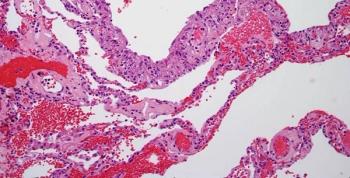
Olaparib plus temozolomide appears to prolong median progression-free survival for those with homologous recombination deficient uterine leiomyosarcoma compared with homologous recombination proficient tumors.
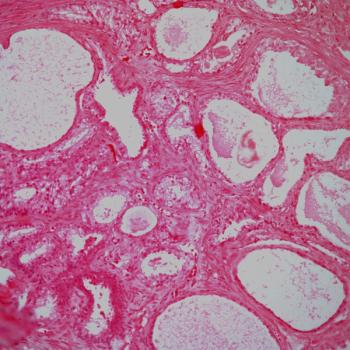
Combination treatment with cabozantinib and atezolizumab did not produce any new safety signals in the treatment of those with metastatic castration-resistant prostate cancer in the phase 3 CONTACT-02 trial.

The FDA allows for expanded bridging therapies in addition to other trial protocol amendments to enable investigators to continue their evaluation of CART-ddBCMA in relapsed/refractory multiple myeloma.
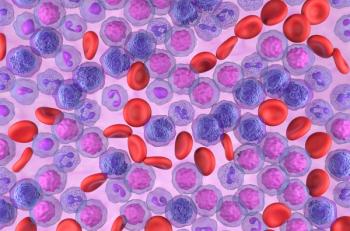
Investigators will work with the FDA to assess the root cause of a grade 5 serious adverse effect in phase 2 PLAT-08 trial evaluating SC-DARIC33 in pediatric acute myeloid leukemia.

The HLA-LOH test makes use of data produced with the xT CDx assay to identify patients with tumors experiencing allele-specific loss of heterozygosity who may benefit from specific targeted treatments.

The FDA companion diagnostic designation for FoundationOne CDx may improve access to treatment with niraparib/abiraterone acetate dual action tablets in those with metastatic castration-resistant prostate cancer harboring a BRCA mutation.

Findings from a phase 1 study highlight that ivosidenib tablets did not raise any new safety signals in the treatment of patients with IDH1-mutated relapsed/refractory myelodysplastic syndromes.

Investigators of the phase 1/2 Acclaim-3 trial will assess quaratusugene ozeplasmid in combination with atezolizumab as a treatment for those with extensive-stage small cell lung cancer.

Findings from a real-world study suggest the importance of novel agents for improving efficacy outcomes and tolerability in elderly patients with mantle cell lymphoma.

Supporting data for the FDA approval of melphalan administered via percutaneous hepatic perfusion for metastatic uveal melanoma come from the phase 3 FOCUS study.

Results from the phase 3 MOMENTUM trial support the use of momelotinib as a treatment for patients with myelofibrosis, including those with anemia or thrombocytopenia.

Cutting out radiotherapy appears to be safe while improving quality of life in patients with POLE-mutated endometrial cancer.
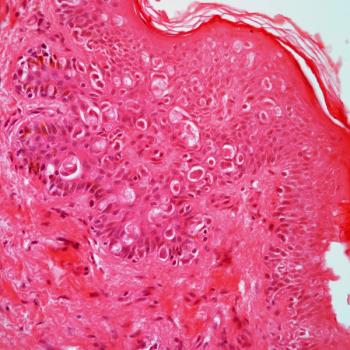
Treatment with immune checkpoint inhibitors does not raise any new safety signals among patients with locally advanced or metastatic penile squamous cell carcinoma in an international cohort study.

Investigators also report that disease-free survival was not associated with regional node irradiation treatment in favorable-risk, node-positive breast cancer.

Data from a phase 2 trial support a supplemental new drug application for isavuconazonium sulfate as a treatment for pediatric patients with invasive aspergillosis or invasive mucormycosis.

Findings from the CROSS-FIRE study may inform individualized decision-making regarding stereotactic radiosurgery for patients with small cell lung cancer, according to Chad Rusthoven, MD.

Implementation of a personalized, proactive care pathway for breast cancer survivors will be evaluated in future clinical trials, according to one of the authors of a pilot implementation study.

The FDA requires data from an additional clinical trial to support the potential approval of avasopasem for managing radiation-induced severe oral mucositis in patients with head and neck cancer.

The therascreen PDGFRA RGQ PCR kit has become the first FDA-approved companion diagnostic designed to detect platelet-derived growth factor receptor alpha gene mutations.

Michael Ganio, PharmD, MS, BCPS, FASHP, addresses some challenges concerning the ongoing chemotherapy shortage in the United States, and how communication among clinical teams may mitigate it.

Investigators plan to launch a controlled trial assessing remestemcel-L in the highest-risk adults with steroid-refractory acute graft-versus-host-disease to meet the FDA’s request for additional data.

Findings from a phase 1 trial highlight the potential tolerability and efficacy of ABM-1310 as a treatment for patients with BRAF-mutated solid tumors.

The reduction of hematologic adverse effects with trilaciclib may improve clinical outcomes in patients with extensive-stage small cell lung cancer, according to Jerome Goldschmidt, MD.

Findings from a previous phase 1/2a trial demonstrate that zipalertinib is a potential treatment option for pretreated patients with non–small cell lung cancer harboring EGFR exon 20 insertion mutations.

Investigators note that although therapy-related myelodysplastic syndromes or acute myeloid leukemia are not common, efforts to reduce treatment-associated toxicity in survivors of lymphoid neoplasms are needed given the poor prognosis associated with the diagnosis.

Treatment with batiraxcept plus paclitaxel did not produce any new safety signals among patients with platinum-resistant ovarian cancer in the phase 3 AXLerate-OC trial.
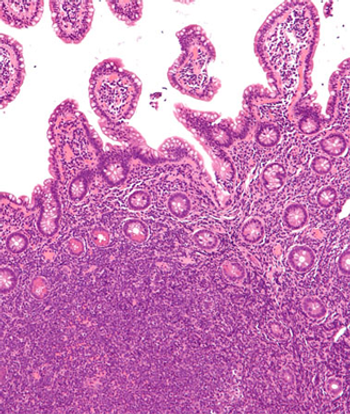
Levels of soluble CD163 appear to be higher in those with p53 abnormalities, elevated lactate dehydrogenase, and low hemoglobin in a study cohort of patients with mantle cell lymphoma.

Elraglusib is currently under evaluation as a treatment for patients with several types of advanced cancers as part of the phase 1/2 1801 trial.
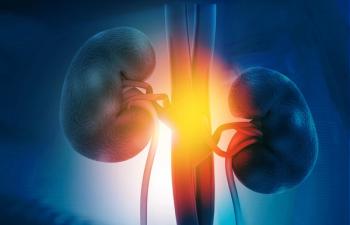
The investigational T-cell therapy IVS-3001 is currently under evaluation as part of a phase 1/2 trial in patients with advanced or metastatic solid tumors that are HLA-G positive.